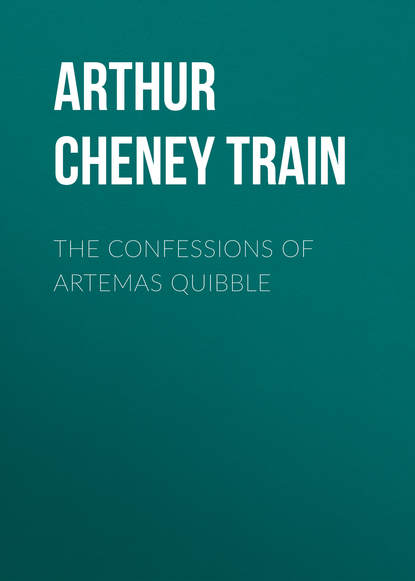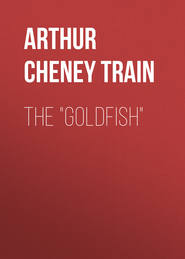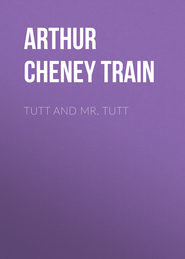По всем вопросам обращайтесь на: info@litportal.ru
(©) 2003-2024.
✖
The Confessions of Artemas Quibble
Настройки чтения
Размер шрифта
Высота строк
Поля
"Why," answered the attorney, "if I ask you to cash a check for me, do I not represent that I have a right to draw upon the bank for the amount set forth? If not, no one would ever cash a check. The innocent person who advances the money has the right to assume that the borrower is not offering him a bad check. There is a tacit representation that the check is good or that the maker has funds in the bank to meet it."
"True—true!" nodded his Honor. "There is something in what you say. What answer can you make to that, Brother Gottlieb?"
"I have a hundred good arguments," replied the lawyer in a low tone. Then he added briskly: "But the intent, your Honor! There can be no crime without a wrongful intent; and how can there have been any such when my client honestly believed that he had the money in the bank to meet the check?"
"But," cried the other, "he knew very well he had not!"
"What evidence have you to that effect?" queried Gottlieb. "You say so, to be sure, but I, on the contrary, assert that he was perfectly honest in the matter. Now, there is absolutely nothing in this case to prove that he had any guilty knowledge to the effect that his account was too low to meet the draft in question. You have proven no scienter whatever."
"Ah!" exclaimed the judge. "That is it! You have shown no scienter!"
"Exactly!" cried Gottlieb—"no scienter at all."
"But how in the world could I have proved a scienter?" wrathfully demanded the lawyer. "I can't pry open the prisoner's skull and exhibit his evil intent."
"No, but you could have shown that he knew he had only a few dollars in the bank by the fact that he had previously tried to cash a similar check and that it had been returned. In any event, my own mind is clear on the subject. You have shown no scienter. The prisoner is discharged."
Poor Toby was so overcome by his unexpected release that he began to stammer out incoherent expressions of gratitude to the judge, such as "Oh, thank you, your Honor! God bless your Honor! Thank you, your Honor! I am an innocent man, your Honor!" until Gottlieb, grasping him by the arm, dragged him away from the rail and pushed him into the street. The complainant and his attorney indignantly followed us, the former loudly deploring the way modern justice was administered. Once outside Gottlieb shook hands with Toby and told him if he were ever in trouble again to look him up without fail. Toby promised gratefully to do so, and the lawyer was about to leave us and enter his office when it occurred to me that he still had my friend's roll of bills.
"But, Mr. Gottlieb," said I, "you are going to return Mr. Robinson's money to him, are you not?"
"What!" he exclaimed, growing frightfully angry. "Give him back his money! I have no money of his. It is he owes me money for keeping him out of jail."
"But how about the roll of bills?" I protested. "You certainly do not intend to keep all of that?"
"Certainly—that is my fee," he retorted calmly; "and small enough it is too!"
"How much was there in that roll, Toby?" I asked.
"About five hundred dollars," answered my friend. "But let him keep it, by all means!"
"Why," I exclaimed, "he has done nothing to earn such a fee. He merely got up and said that you had no scienter—whatever that is. It is not worth more than ten dollars."
"Ten dollars!" shouted Gottlieb. "Ten dollars! Why scienter is one of the most complicated and technical defences known to the law. Ten dollars! Scienter is worth a thousand! Your rascally friend got his money for nothing, didn't he? He's lucky to be outside the bars—for if I ever saw a guilty man he's one. Get along, both of you, or I'll call an officer!"
And with that Gottlieb slipped inside his office and banged the door.
"Come along, Quib!" urged Tony; "there's a great deal of truth in what he says. I don't begrudge it to him. It was well worth it to me."
"Lord!" I groaned. "Five hundred dollars just for scienter. If that is the law, then I'll turn lawyer."
And with that idea growing more firmly each moment in my mind I returned to the boarding-house with my friend.
CHAPTER III
I am free to confess that the ease with which Counsellor Gottlieb had deprived my friend Toby of the ill-gotten proceeds of his check —or, for his sake putting it more politely, had earned his fee— was the chief and inducing cause that led me to adopt the law as a career. I shall not pretend that I had any lofty aims or ambitions, felt any regard for its dignity or fascination for the mysteries of its science when I selected it for my profession. My objects were practical—my ambition to get the largest financial return consonant with the least amount of work. My one concrete experience of the law had opened my eyes to its possibilities in a way that I had never dreamed of, and I resolved to lose no time in placing myself in a position to rescue others from harm on the same pecuniary basis as did Mr. Gottlieb.
Of course I realized that I must serve an apprenticeship, and indeed the law required that were I not a graduate of a law school that I must have worked as a clerk for two years before I could be admitted to the bar. Accordingly I began to make inquiries as to what were the best law firms in the city, and before long had acquired pretty definite information as to who were and who were not in high standing. Now, I had no letters of introduction and nothing to recommend me except a certain degree of maturity and a cultivated manner of speaking, and I might and probably should have been trying to this day to break into some sedate and high-toned old-fogy office had it not been for one of those accidents with which my career has been replete.
I had visited all the firms on my list without finding any who wanted to take in a student. Indeed all the offices seemed filled if not crowded with studious-looking young men whose noses were buried in law books. In one or two, to be sure, I might have secured admittance and been given desk room in exchange for the services of my legs as a runner of errands and a server of papers, but none had any idea of paying anything. The profession at the bottom was more overcrowded than the gallery of the Academy of Music when they ran Rosedale. Each night as I returned to my lodgings I felt more and more discouraged. Its smell of cabbage came to have for me an inexpressible sensation of relief, of protection, even of luxury. Here, at any rate, even in an actors' boarding-house, I was independent, as good as anybody, and not regarded as if I were a beggar on the one hand or a questionable character on the other.
How long this might have continued I have no means of knowing, but one afternoon as I was trudging uptown, still holding in my hand a copy of a legal journal, the advertisements in which I had been engaged in sedulously running down, my attention was attracted by a crowd gathered in the street around a young man who had been so unfortunate as to be run over by a stage. There was nothing external to indicate the extent of his injuries, and as I drew nearer two persons assisted him to his feet and began to lead him toward the nearest store. Having nothing better to do I walked along with them, and after they had gone inside remained looking curiously through the window. While I was thus engaged a stout, bustling man of about forty years of age came hurrying down the sidewalk and turned to enter the store. As he did he observed me apparently waiting there and his eye with a quick glance took in the title of the paper in my hand. Instantly he stepped up beside me and tapping me on the arm said in a low tone:
"Whom do you represent?"
I was somewhat taken aback by this inquiry, not seeing at the moment its immediate relation to the business at hand, but for want of a better answer I replied in the same spirit:
"Artemas Quibble."
"Oh! Quibble, eh! I've heard of him. But look here, my young friend, there is no reason why honest men should cut one another's throats. Tell my friend Quibble I was here before ye and keep this for yourself."
And with that he peeled a twenty-dollar bill from the top of a heavy roll that he produced from his pocket and placed it within my palm.
"Very good," said I. "It may cost me dear if Quibble hears of it, but a man must live, and I work at starvation wages."
I placed the bill in my breast pocket and made way for him to enter the store, which he did without more ado. Why this busy gentleman should gratuitously present me with twenty dollars did not at the moment occur to me. I continued on my way northward, pondering upon the question, and passed the street upon which the police court was located and Counsellor Gottlieb had his office. The thought came into my mind that here was the very person to shed light upon the subject and I turned the corner and opened the door. Gottlieb was in his customary position with his feet elevated upon the table before him.
"Well," he said, "I didn't expect you back so soon."
"I've come for free advice this time," I answered.
"Oh," he grunted. "Well, in that case perhaps you won't get it."
Somehow I had taken a shine to the fellow, for all his robbery of poor Toby, and I admired his quickness of perception and readiness of speech. Perhaps he too felt not unkindly toward me. At any rate I told him my story.
"Now," says I, "what d'ye make of it?"
Gottlieb laughed.
"Was he a fat little turkey with gray eyes?" he inquired.
"The same," I replied.
"Then it was Tom Kelly," he answered. "On his daily still hunt for the maimed, the halt and the blind. You say the chap had been run over by the stage? Well, Tom'll take his case on a contingent fee—fifty per cent. to Tom and fifty per cent. to the client of all that comes of it—bring an action against the stage line and recover heavy damages. Oh, it's terrible to think what that poor injured young man will suffer. To-day he may feel quite well, but to-morrow he will have all kinds of pains in his head and eyes, his spine will ache, he will experience symptoms of a nervous breakdown. He will retire to bed and not emerge for six months, and when he does he'll be a hopeless and helpless cripple for life. Tom is an artist, he is, in his own line. They tell me he made sixty thousand last year out of his accident practice alone. Why, the case he gave you twenty to keep out of may net him five thousand dollars."
"If I'd known that it would have cost him fifty!" I said, feeling that an unjust advantage had been taken of me.
"Twenty is the regular rate," answered Gottlieb. "There are too many chances to make it worth much more merely to get the other fellow out of the way. Sometimes, though, I've paid as high as fifteen hundred for a case."
"Fifteen hundred!" exclaimed I.
"Yes, and got a verdict of nineteen thousand, of which I pocketed ninety-five hundred and four hundred dollars costs besides."
"Whew!" I whistled.
"Oh, there's pretty good pickin's on occasion even for a police- court lawyer," he continued; "but it's nothin' to the return from what I might call legitimate practice. Now, there's old Haight, of Haight & Foster, for instance. He gets half a dozen twenty- thousand-dollar fees every year, and all he has is strictly old- fashioned probate and real-estate practice and a little of this new-fangled railroad business. My great regret is that I didn't stick to regular trade instead of going after easy money. Who's Gottlieb now? Just a police-court lawyer, when he might be arguing before the Supreme Court of the United States! My brain's just as good as Haight's. I've licked him many a time in my young days. And then I get tired of all this hogwash! I tell you it's dirty business, most of it!"
"Well," I answered, remembering "scienter," "I've no doubt that you could beat them all. But I fancy you have nothing to complain of in the way of returns, yourself. What worries me is how to get any start at all. I've tried half the law offices in town."









